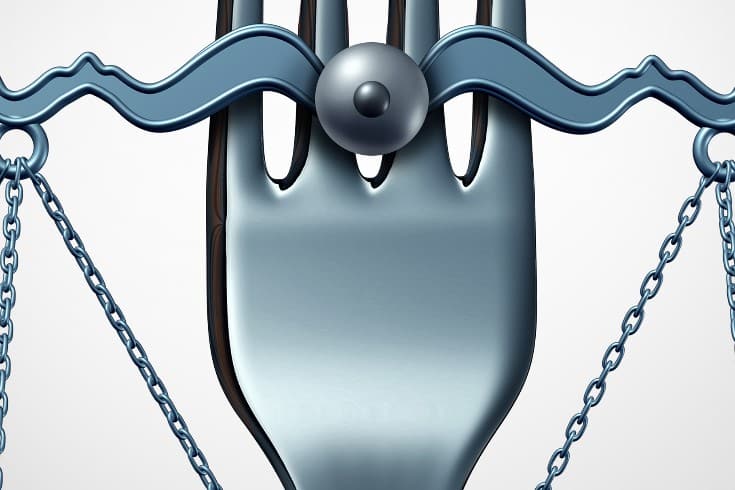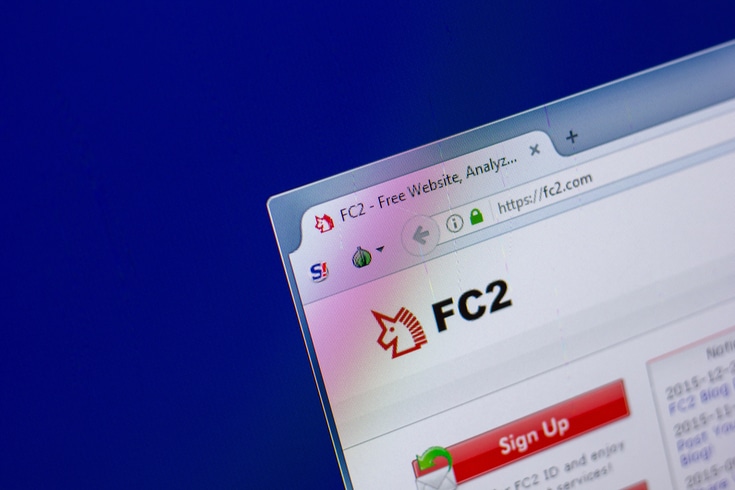Court Case Regarding the Removal of Reputational Damage on 'Japanese Tabelog' Reviews

Tabelog is a gourmet website operated by the Kakaku.com Group. It is designed with the concept of being a “gourmet site for those who do not want to make a mistake in choosing a restaurant”, and it features restaurant information from all over Japan, along with user reviews.
As of early April 2019, it has listed 913,118 restaurants and 30,313,856 reviews, and it is said that more than 118 million people use it every month.
In a certain survey on “gourmet sites with usage experience”, Tabelog ranked first with 80%. Given Tabelog’s significant influence, a negative review can deal a major blow to the restaurant in question.
Tabelog Reviews May Be Removed for Violating Guidelines
The guidelines for Tabelog are quite strict and detailed. Therefore, posts that interfere with business from rival stores, or harassment posts from complainers, may be removed based on violations of these guidelines. Please refer to another article on our site for more information on this topic.
https://monolith.law/reputation/tabelog-review-delete[ja]
If a post clearly violates the guidelines, it may be removed upon reporting to Tabelog. However, not all cases are so clear-cut, and there may be instances where posts are not removed. In such cases, it may be necessary to seek removal through litigation. What kind of lawsuits have there been in the past between restaurants and Tabelog (Kakaku.com)?
Case of Requesting Removal for a Storefront Photo that Differs from Reality
A restaurant in Saga City filed a lawsuit against Tabelog in September 2010 (Heisei 22).
The restaurant had undergone a renovation, but the photos and information from before the renovation were still posted on Tabelog. The restaurant claimed that this was misleading to customers as it did not reflect the actual state of the restaurant, and demanded that Kakaku.com, the operator of Tabelog, remove the information about the restaurant.
https://monolith.law/reputation/provisional-disposition[ja]
Request for Removal Based on the Reason that the Information Posted is Not the Most Recent
In response, Kakaku.com argued, “We have stated that the information is not the most recent, and there is no error as information at the time of posting, so there is no illegality.”
Indeed, even now, for example, above a review of a certain store by Mr./Ms. XX, it is stated:
This review is the subjective opinion and impression of Mr./Ms. XX at the time of their visit.
It may differ from the most recent information, so please confirm with the store.
If the review violates the terms of use, you can report it from the link on the right.
It seems to have been almost the same since then.
The argument that “it is not incorrect as a photo at the time of posting” and “therefore, even if it differs from the current photo, it is not illegal” may indeed be correct. However, as a restaurant owner who has spent money on renovations, it must have been disappointing.
Here, what the restaurant owner demanded was that his/her restaurant was posted on Tabelog without permission, and moreover, the information was different from the current one, so he/she demanded that all information about his/her restaurant be deleted.
In response, Kakaku.com refused the request.
Tendency to Easily Accept Deletion or Correction if the Information is Clearly Incorrect?
Although the two parties had a significant gap in their claims, in the end, Kakaku.com agreed to delete the information and photos of the restaurant, and the restaurant side agreed to withdraw the lawsuit.
In this case, the request for deletion was not granted by a court decision, but it is noteworthy that the restaurant’s request was accepted through discussion.
The reason for this outcome is thought to be that a “photo” was posted on Tabelog, and it was clear that the content was different. Unlike the content of food and service, information that can easily clarify the facts is likely to be smoothly accepted for deletion requests.
Case of a Store Requesting Deletion Due to Complaints of Long Wait Times

In May 2013 (Heisei 25), a restaurant owner in Sapporo sued the review site Tabelog in the Sapporo District Court, demanding the deletion of their page and compensation for damages. This was due to a review that included a picture of half-eaten food and a comment stating, “I had to wait about 40 minutes for the food to come out,” which led to a significant decrease in customers.
The restaurant owner had posted information about his restaurant on Tabelog in January 2012. However, after the critical review stating, “I had to wait about 40 minutes for the food to come out,” was posted, the number of customers visiting the restaurant dropped dramatically. The owner believed Tabelog was to blame and requested the deletion of the post, including the restaurant information, claiming that the content stating “I had to wait 40 minutes” was not true. However, when Tabelog refused, the owner sued for the deletion of his restaurant’s page and compensation for damages, arguing that the publication of information about the restaurant violated the Unfair Competition Prevention Act (Japanese Unfair Competition Prevention Act) and infringed on his personal rights, such as the right to a name derived from his personality rights.
In September 2014 (Heisei 26), the Sapporo District Court dismissed the owner’s claim, stating, “This does not constitute an act of passing off under the Unfair Competition Prevention Act because it does not make it difficult to identify or recognize the store or the operator of the site. Reviews do not infringe on the right to operate a business, and if the plaintiff’s request is accepted, expressions and information will be arbitrarily restricted.”
The Unfair Competition Prevention Act does not recognize the right not to have the store’s name listed
The Unfair Competition Prevention Act prohibits the use of another person’s famous product or similar indications as one’s own, but the judgment also cited “the store in question is not so famous as to be subject to the Unfair Competition Prevention Act, and there is no intention of unfair competition on the part of Kakaku.com.” It also cited as a reason that “the store is conducting business activities by soliciting customers widely, and does not have the same information control rights as individuals.”
The restaurant owner appealed to the Sapporo High Court, but in June 2015 (Heisei 27), the High Court also dismissed the appeal, making the same judgment as the District Court.
The reasons were the same as in the original trial: “The use of the store’s name is for the purpose of identifying the store and reviews, so it is not a misuse of the name,” and “The store’s name and location are already publicly available, so even if they are published without consent, it does not infringe on the store’s profits.”
The judgment pointed out that “depending on the content of the reviews, the store’s reputation may decline, and certain business damages may occur,” and mentioned that “if the post defames the store’s honor or credit, deletion may be allowed.” At the same time, it also indicated that “if the review is socially reasonable, the store should accept the business loss.”
The restaurant owner appealed this decision, but in June 2016 (Heisei 28), the Supreme Court decided not to accept the appeal, and the judgments of the first and second trials were finalized.
Although this is an interesting case, the point of contention in this lawsuit was the “deletion of the page itself” where the store information is posted. Normally, what is requested is the “deletion of the problematic part.” In the media, this point seems to be not well recognized and is often confused. Many people seem to misunderstand that “you can’t win a lawsuit by requesting deletion from Tabelog,” and such discourse can be seen in some media reports.
There are cases where you can win if it is a partial deletion of a review that constitutes defamation
There is an understanding that the judgment has been made that the store side should accept any kind of post, but that is not the case.
The Sapporo District Court in the first trial stated, “It cannot be accepted at all because the information obtained by the site users will be arbitrarily restricted,” and the Sapporo High Court in the second trial also judged, “As long as you run a restaurant, you should accept the loss even if there is a loss in a socially reasonable ‘review’.”
This is a proper judgment, and it is natural to think that a corporation or a company that operates a restaurant business targeting the general public does not have the right to control information about itself (accident information control right) in the same way as an individual. In other words, even if you are criticized or criticized, you should accept it if it is reasonable. Also, if the store side is given the freedom to choose the medium in which its own information is posted and to reject it if the store does not want it, other people’s expressions and the information obtained will be arbitrarily restricted, resulting in a direct conflict with “freedom of expression,” and it may become impossible to express anything freely.
However, that is different from the story that “even if a review that constitutes defamation is posted, the partial deletion of the review itself cannot be done.” It is believed that the partial deletion of a review that constitutes defamation is possible, even against Tabelog, just like other sites.
https://monolith.law/reputation/defamation[ja]
Case of Requesting Removal of Store Information
There has been a case where a restaurant requested the removal of its information from the food review site, Tabelog, arguing that the mere posting of the information was problematic.
The restaurant in question was operating as a “hidden gem,” conducting business without extensive advertising and relying on word-of-mouth. The main clientele were regulars and those introduced by regulars, and the restaurant was quietly operating.
However, one day, the restaurant started to receive many first-time customers. The owner, finding this suspicious, investigated and discovered that the restaurant’s information had been posted on Tabelog.
It should be noted that the restaurant had a sign stating “No posting of reviews,” but it did have its own website.
Is there a right to limit the scope of information disclosure about one’s own store?
In this case, the information posted on Tabelog was not incorrect, nor was it a request to remove defamatory articles. The restaurant owner requested the removal of the information, i.e., the entire page, arguing that the posting of the information was harming the business. The owner claimed infringement of the right to control personal information and the right to conduct business.
In February 2015 (Heisei 27), the Osaka District Court ruled that “the right to control information is based on personal rights, but this right is not for recognizing torts or injunctions,” and decided that it could not be a basis for a removal request.
Regarding the infringement of the right to conduct business, the court did not accept the restaurant’s claim, ruling that even if Tabelog did not comply with the removal request, it would not be considered illegal, given that the restaurant had its own website and was disclosing its information.
Could a completely “hidden” restaurant request the removal of its information?
In this case, the court rejected the restaurant’s removal request because the restaurant had already disclosed its information through its website, blog, Twitter, etc. However, if the restaurant had not disclosed such information, the removal might have been approved. This is an interesting point. What would the judgment have been if the restaurant was a “complete hidden gem” that did not disclose any information?
In fact, the court ruling states that “the freedom of business and professional activities, which are included in the freedom of choice of occupation under Article 22, Paragraph 1 of the Constitution, are guaranteed. The subjects of this right can be not only individuals but also corporations. Therefore, the plaintiff has the right or interest to choose whether to disclose its own information for the performance of its business.” This means that a corporation’s right or interest to choose whether to disclose its own information in the course of its business should be protected.
The court states that whether to approve a removal request is determined by the “correlation between the infringement of the restaurant’s interests and the infringing act.” In this case, the degree of information disclosure by Tabelog was no different from the degree of disclosure of the restaurant’s information already announced by the restaurant, so the removal request was not approved. Therefore, if the degree of information disclosure by the restaurant is low, the correlation may be disrupted, and the removal request may be approved.
In this case, the restaurant appealed the decision, but the case was settled.
The details of the settlement are not clear, but some of the restaurant’s information has been removed from the Tabelog site.
Specifically, the phone number and reservation status have been set to “private,” the address is displayed only by the town name, and the map is no longer displayed.
Summary
If a post clearly violates the guidelines, it can be removed by reporting it to Tabelog (Japanese restaurant review site).
However, if it cannot be removed, you may have to take legal action against Tabelog (Kakaku.com in Japanese) to demand removal.
Please consult with our experienced attorneys at our law firm. We will respond promptly.
Category: Internet





















